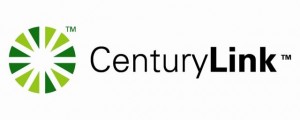Ther e is a new disturbance building up in the cloud as a new wave of computing trends rise to popularity. One of them is the rising audience and user market for Docker. Here is a peek of what to expect in the complicated arena of cloud computing in 2014.
e is a new disturbance building up in the cloud as a new wave of computing trends rise to popularity. One of them is the rising audience and user market for Docker. Here is a peek of what to expect in the complicated arena of cloud computing in 2014.
Amazon Web Services (AWS) will continue to dominate and retain its title as the Apple of cloud computing. With its vast collection of web services in the forefront of the marketplace, Amazon, with its S3 and EC2 is compared with Apple that gained territory in the mobile apps and gaming industry. There is yet to be an Android of cloud computing that will challenge the position of Amazon in the cloud platform.
CTL-C of CenturyLink is the next big thing as it currently develops a platform that uses AppFog and a new developer app called Docker. This platform aims to go beyond virtualizing and to simplify managing, running and even moving applications from one location to another, therefore, making life easier for cloud users. It hopes to be the Android of cloud computing as it merges the infrastructure services of IaaS and PaaS. It will be the third infrastructure between the two, which is currently serviced by OpenStack but in a very limited environment.
“What if you could have different components interacting as first-class citizens with each other? That’s how you build complex, distributed applications,” Vice President of Cloud Evangelism at CenturyLink, Lucas Carlson said.
Docker, developed by Solomon Hykes and previously known as dotCloud is another hopeful player as it develops application codes that will function as an organized digital packaging and shipping container. The container concept will have the feature to move a computer from one area to another using sophisticated, but less complicated application that uses management tools and micro controls for cloud computing, and the best part is that it is open source too, much like Android OS.
Currently, Docker version 0.7 has just made its system able to run on all Linux OS and major distributions such as Red Hat, Ubuntu, Gentoo, Fedora, Suse and Arch Linux. It has also developed its own core system called CoreOS. With this dedicated system the application hopes to isolate each container, make it portable and eliminate unnecessary installation and configuration each time the user needs to access the data. The new version also allows support for offline transfers, container communications and more storage drivers. In the near future Hykes hopes to run Docker on 32-bit operating systems.
“I think that Docker is the kind of technology that can be used to enable better enterprise solutions for cloud adoption. I think it doesn’t have everything, but I think that it’s a very interesting building block, a stepping stone toward enterprise adoption of cloud,” Lucas said.
“The days of boundaries between infrastructure as a service and platform as a service and Docker and Linux containers and cloud managed services and traditional hosted services — those boundaries are beginning to break down. That’s the big story,” Carlson added.